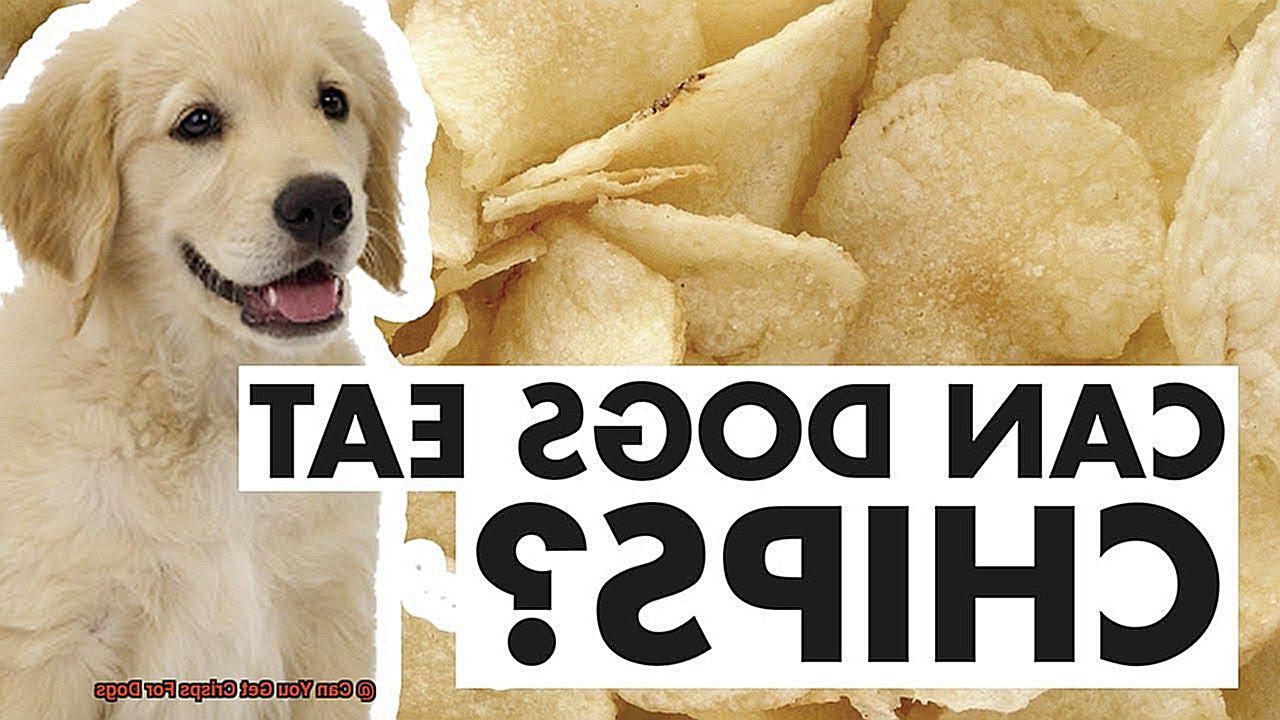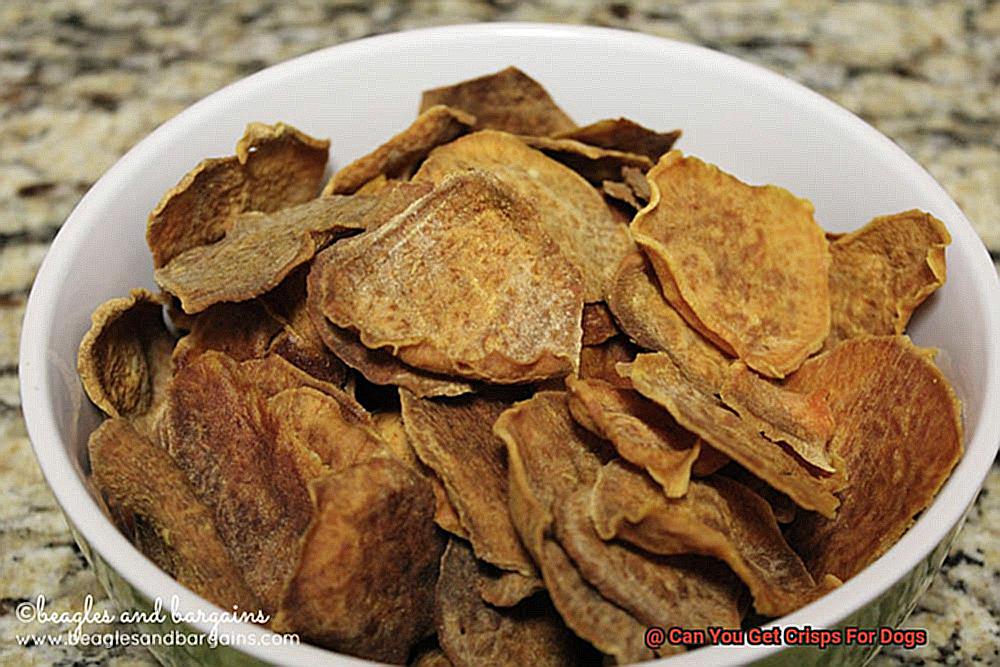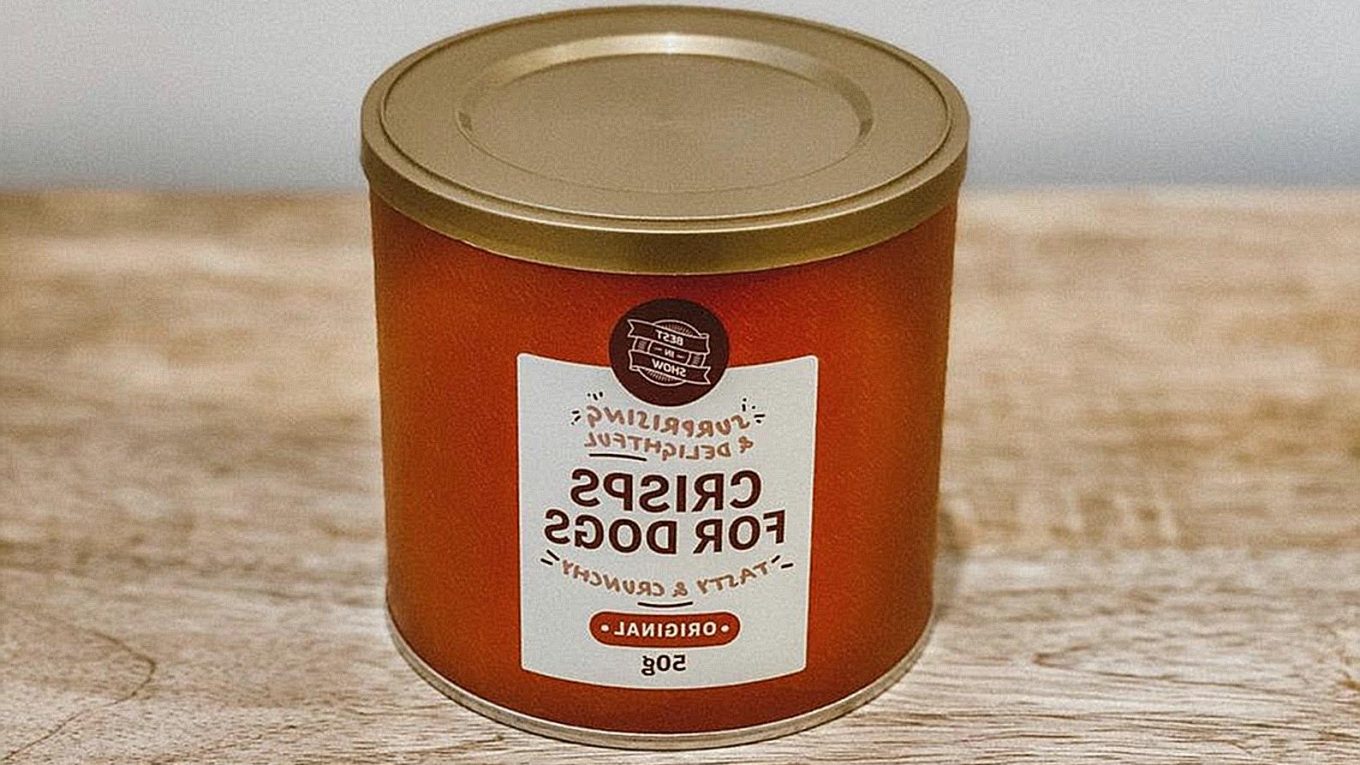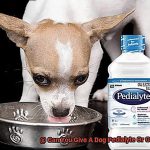Can You Get Crisps For Dogs?
Ever caught yourself munching on some crispy goodness and wondered, “Can my four-legged buddy join in on the snacking fun?” Well, fret not, because we’ve got some exciting news for you. While regular crisps might not be the best bet for your furry companion, there are actually specially-made crisps designed just for dogs. These tail-wagging treats are crafted with your pup’s health and nutritional needs in mind, promising to make their taste buds do a happy dance.
In this pawsitively awesome blog post, we’re diving headfirst into the world of dog crisps. We’ll explore all the benefits they bring to your canine friend’s snacking routine and why they’re an absolute game-changer. From tantalizing flavors to wholesome ingredients, we’ll uncover why these crisps are top-notch when it comes to adding a little extra excitement to your doggo’s day. So buckle up, stay tuned, and let’s fetch all the deets on whether your pup can get in on the crisp-eating action.
The Potential Health Risks of Giving Dogs Regular Crisps
Contents
- 1 The Potential Health Risks of Giving Dogs Regular Crisps
- 2 Dog-Friendly Alternatives to Regular Crisps
- 3 What Ingredients Should Be Avoided in Dog-Friendly Crisps?
- 4 The Benefits of Making Your Own Homemade Dog-Friendly Crisps
- 5 Tips for Feeding Your Dog Treats Safely and Responsibly
- 6 The Importance Of Consulting With A Veterinarian About Your Dog’s Diet
- 7 Conclusion
We all know how tempting it can be to share our favorite snacks with our furry friends, but when it comes to regular crisps, we have to be extra cautious. French Bulldogs, like many other breeds, have specific dietary needs that differ from ours. In this post, we’ll dive into the potential health risks of giving dogs regular crisps and explore safer alternatives.
Dogs and their dietary needs

Doggy diets are not the same as ours, my friends. While we may enjoy the salty crunch of a crisp, our canine companions may not have the same tolerance for certain ingredients and seasonings found in regular crisps. Dogs require a balanced diet that meets their nutritional requirements for optimal health.
The ingredients in regular crisps and their impact on dogs’ health
Regular crisps for humans often contain high amounts of salt, artificial flavors, preservatives, and other additives that can wreak havoc on a dog’s system. These ingredients can lead to dehydration, kidney problems, digestive upset, and even obesity in our furry friends.
High salt content in crisps and its effects on dogs’ kidneys and blood pressure
Did you know that excessive salt intake can put a strain on a dog’s kidneys and raise their blood pressure? Dogs are more sensitive to salt than humans, and consuming regular crisps with high salt content can lead to dehydration and kidney problems. Plus, it can increase the risk of high blood pressure in our four-legged pals.
Artificial flavors, additives, and preservatives in crisps and their potential harm to dogs’ digestive system
Dogs have delicate digestive systems that may not tolerate artificial flavors, additives, and preservatives found in regular crisps. These ingredients can cause digestive upset, including diarrhea and vomiting. Let’s keep those sensitive tummies in mind, folks.
Excessive fat content in crisps and the risk of obesity and related health issues in dogs
We all want our furry friends to stay fit and healthy, right? Well, regular crisps can be a real danger to their waistlines. These snacks are often high in fat, which can lead to weight gain and obesity in dogs. Obesity puts them at risk for a whole host of health issues, including diabetes, joint problems, and heart disease.
The potential choking hazard of crispy textures for dogs, especially small breeds
Uh-oh. Crispy textures can be a potential choking hazard for dogs, especially those who are small in size like our French Bulldogs. The crispiness of regular crisps can easily break into small pieces that could get lodged in their throat. Let’s avoid any unnecessary emergencies, shall we?
Dog-Friendly Alternatives to Regular Crisps
We all know how irresistible those crunchy crisps can be, but when it comes to our furry friends, we have to think pawsitively about their health. Regular crisps are a big no-no for our adorable Frenchies due to their high salt and fat content. But fret not. I’m here to guide you through some woof-tastic alternatives that will make your French Bulldog’s tail wag with delight.
Dehydrated Fruits and Vegetables:
Nothing beats the satisfying crunch of dehydrated fruits and veggies, and your Frenchie will agree. These paw-some treats are packed with essential vitamins and minerals while being low in calories. Look for dehydrated apples, carrots, sweet potatoes, or berries to give your pup a delightful snacking experience.
Baked Dog Treats:
What’s better than a tasty snack that’s made specifically for dogs? Baked dog treats are formulated with dog-friendly ingredients like whole grains, lean meats, and natural flavors. Choose from a variety of flavors such as peanut butter, cheese, chicken, or beef to cater to your Frenchie’s taste buds.
Dog-Friendly Jerky Treats:
For a savory option that will make your Frenchie drool, try dog-friendly jerky treats. These chewy delights are made from high-quality meat that has been thinly sliced and dried. Just make sure to avoid jerky treats made for human consumption as they may contain harmful ingredients like onions or garlic.
Homemade Sweet Potato Chips:
If you enjoy getting creative in the kitchen, whip up some homemade sweet potato chips for your Frenchie. Slice sweet potatoes into thin rounds or strips, toss them in a bit of olive oil, and bake them until they become crispy. These delicious chips are not only mouthwatering but also provide fiber, vitamins, and minerals for your pup.
Air-Popped Popcorn:
Looking for a guilt-free, low-calorie option that will give your Frenchie a satisfying crunch? Air-popped popcorn is the paw-fect choice. Just make sure it’s plain, unsalted popcorn without any additives or seasonings. This delightful snack can even be a great source of fiber for your furry friend.
Remember, moderation is key when treating your Frenchie to these alternatives. Always choose treats made specifically for dogs and consult with your veterinarian if you have any concerns about your Frenchie’s diet.
What Ingredients Should Be Avoided in Dog-Friendly Crisps?

When it comes to choosing dog-friendly crisps for your French Bulldog, it’s important to be mindful of the ingredients used. Dogs have different dietary needs and sensitivities compared to humans, so certain ingredients can be harmful to their health. Here are some ingredients that should be avoided in dog-friendly crisps:
- Onion and Garlic: These ingredients may add flavor to human snacks, but they contain compounds that can be toxic to dogs. Onion and garlic can damage a dog’s red blood cells and lead to anemia. So, it’s best to steer clear of crisps that contain onion or garlic powder.
- Salt: Excessive salt intake can be detrimental to a dog’s health. It can lead to dehydration, electrolyte imbalances, and even kidney damage. So, it’s important to choose crisps that either have no added salt or limit the amount of salt used.
- Artificial Flavors and Preservatives: These additives not only lack nutritional value but can also cause allergies or gastrointestinal issues in dogs. It’s best to opt for crisps that are made with natural ingredients and free from artificial flavors and preservatives.
- Chocolate, Raisins, and Grapes: These foods are highly toxic to dogs and should never be included in dog-friendly crisps. They can lead to serious health problems, including kidney failure. Always double-check the ingredient list to ensure these ingredients are not present.
- Allergens: Ingredients such as wheat, soy, corn, or dairy products are common allergens for dogs. If your French Bulldog has any allergies or sensitivities, it’s important to avoid crisps that contain these ingredients. Look for alternatives made with hypoallergenic ingredients.
When selecting dog-friendly crisps, it’s advisable to choose those made with natural and wholesome ingredients. Look for products that use real meat or vegetables as the main ingredients, without any artificial additives or fillers. Reading the ingredient labels carefully is crucial to ensure the safety and well-being of your furry friend.
If you’re unsure about the safety of certain ingredients, it’s always best to consult with a veterinarian. They can provide guidance on which ingredients are safe for dogs and help you choose the right kind of dog-friendly crisps.
The Benefits of Making Your Own Homemade Dog-Friendly Crisps

Are you ready to embark on a culinary adventure that will not only tantalize your taste buds but also keep your furry friend’s tail wagging with delight? Well, look no further than making your own homemade dog-friendly crisps. This pawsome endeavor comes with a treasure trove of benefits that will have you and your pooch jumping for joy. So, grab your chef’s hat and let’s dive into the sea of benefits.
- Healthier Ingredients: Many commercial crisps for dogs are riddled with preservatives, artificial flavors, and unhealthy additives. But fear not, mateys. By making your own at home, you have complete control over the ingredients used. You can ensure that they are fresh, nutritious, and tailored to your pup’s dietary needs.
- Allergy-Friendly: Ahoy, buccaneers with allergy-prone pups. Making homemade dog-friendly crisps allows you to navigate the treacherous waters of ingredient allergies. Some dogs may have sensitivities to certain ingredients commonly found in commercial crisps, but by making your own, you can choose safe and suitable ingredients that won’t send your furry first mate into a sneezing frenzy.
- Customize to Your Pup’s Preference: Just like humans, dogs have their own unique taste preferences. Arrr, matey. By making your own crisps, you can experiment with different ingredients and seasonings to create a snack that will make your pup drool in anticipation. Whether they prefer a hint of cheese or a dash of peanut butter, you can cater to their every whim.
- Fun for All: Avast ye. Making your own dog-friendly crisps isn’t just about the end result; it’s about the journey itself. It’s an opportunity to bond with your furry friend and create memories that will last a lifetime. Get your pup involved by letting them help choose the ingredients or watch them eagerly wag their tail as they wait for the crisps to come out of the oven. It’s a pawfect activity for some quality time together.
- Treasure in Your Wallet: Shiver me timbers. While there may be some initial investment in purchasing ingredients and tools, making your own dog-friendly crisps can be more cost-effective in the long run. By making larger batches, you can save doubloons and ensure a constant supply of healthy and tasty snacks for your furry matey.
- A Green Adventure: Ahoy, eco-conscious dog parents. Making homemade dog-friendly crisps is a step towards a more sustainable world. By reducing reliance on commercially packaged products, you’re helping to reduce waste and lower carbon emissions. Plus, using fresh ingredients from local sources supports local farmers and reduces transportation emissions. It’s a win-win for both your pup and the planet.
Tips for Feeding Your Dog Treats Safely and Responsibly
French Bulldogs are adorable and lovable companions who deserve the best care, including treats. Treats can be a great way to reward, train, and bond with your furry friend. However, it’s essential to feed them safely and responsibly to ensure their health and well-being. Here are some tips to help you do just that.
Choose Healthy Treats:
When selecting treats for your French Bulldog, opt for high-quality options made specifically for dogs. Check the ingredients list to ensure they are safe and suitable for your dog’s dietary needs. Look for treats that are low in calories, free of harmful additives like artificial colors and flavors, and made from natural ingredients. This will help keep your French Bulldog healthy and happy.
Portion Control:
While treats are a delicious indulgence, they should only make up a small portion of your French Bulldog’s daily caloric intake. Consult with your veterinarian to determine the appropriate number of treats based on your dog’s size, age, and activity level. By practicing portion control, you can avoid overfeeding and maintain a balanced diet for your pup.
Watch for Allergies and Sensitivities:

Just like humans, dogs can have allergies or sensitivities to certain foods. When introducing new treats to your French Bulldog, do so gradually and monitor their reaction. If you notice any adverse symptoms such as itching, vomiting, or diarrhea, consult with your veterinarian. They can help identify any potential food allergies or sensitivities and guide you towards safe treat options.
Training Treats vs. Occasional Treats:
Differentiate between training treats and occasional treats. Training treats should be small, low-calorie, and easily digestible. They serve as rewards during obedience training sessions. On the other hand, occasional treats can be given as special rewards or bonding time with your French Bulldog. It’s important not to overindulge in occasional treats to prevent weight gain and maintain a healthy diet.
Safe Treat Options:
There are plenty of safe treat options for your French Bulldog. Consider small pieces of cooked meat like chicken or turkey, which are rich in protein. Fruits like blueberries and apple slices can be a healthy and tasty treat option too. Vegetables such as carrots and green beans are also safe and nutritious choices. Remember to avoid toxic foods like chocolate, grapes, onions, and garlic, as they can be harmful to your French Bulldog.
Supervise Treat Time:
Always supervise your French Bulldog while they enjoy their treats. Some treats may pose choking hazards or be swallowed whole, so it’s important to keep an eye on them. Create a designated treat time or use treat-dispensing toys to engage your dog while ensuring their safety.
The Importance Of Consulting With A Veterinarian About Your Dog’s Diet
As a responsible and caring dog owner, you want nothing but the best for your beloved French bulldog. One of the most important aspects of their care is their diet. Dogs have specific dietary needs that are different from humans, and it’s essential to ensure they are getting the right balance of nutrients to maintain optimal health. That’s why consulting with a veterinarian about your dog’s diet is so important.
Tailored Recommendations Based On Individual Needs
A veterinarian can assess your French bulldog’s individual needs based on factors such as their age, breed, size, activity level, and any underlying health conditions. This allows them to provide tailored recommendations on the type and amount of food your dog should be eating. By considering these factors, a veterinarian can help you choose a diet that meets your dog’s specific requirements and prevents any nutritional deficiencies or excesses.
Identification of Allergies or Sensitivities
Just like humans, dogs can have allergies or sensitivities to certain ingredients in their diet. These can cause digestive issues, skin problems, or other health concerns. Consulting with a veterinarian allows them to identify any allergies or sensitivities your French bulldog may have and guide you in selecting appropriate food options. They can recommend hypoallergenic diets or help you navigate ingredient labels to avoid potential triggers.
Smooth Transitions and Changes
If you are considering making any changes to your French bulldog’s diet, such as introducing new foods or switching to a different brand, it’s crucial to consult with a veterinarian. They can provide guidance on how to make the transition smoothly and monitor your dog’s response to ensure they are tolerating the new diet well. Sudden changes in diet can lead to digestive upset or other health issues, so it’s best to have professional advice during this process.
Specialized Diets for Specific Health Conditions
In some cases, French bulldogs may require specialized diets due to specific health conditions or nutritional needs. For example, dogs with kidney disease may need a diet low in phosphorus, while those with food allergies may benefit from a limited ingredient diet. A veterinarian can explain the benefits of these specialized diets and provide guidance on how to properly feed them to your French bulldog.
Overall Health and Well-being
By consulting with a veterinarian about your French bulldog’s diet, you are ensuring that they receive the proper nutrition they need to thrive and maintain good health throughout their life. A balanced and appropriate diet can help prevent obesity, maintain a healthy weight, support their immune system, promote healthy skin and coat, and prevent other potential health issues.
Remember, every dog is unique, and what works for one may not work for another. Consulting with a veterinarian will help you make informed decisions about your French bulldog’s diet and give you peace of mind knowing that you are doing the best for their overall health and well-being.
HaP82vtbMAI” >
Conclusion
Yes, you can indeed find crisps specifically made for dogs.
These dog-friendly snacks are designed to cater to their unique dietary needs and taste preferences. So, if you’re looking to treat your furry friend with a crunchy and flavorful snack, rest assured that there are options available just for them.
Whether it’s a savory potato chip or a crispy veggie bite, these snacks are formulated with the utmost care to provide a safe and delicious snacking experience for our four-legged companions.




